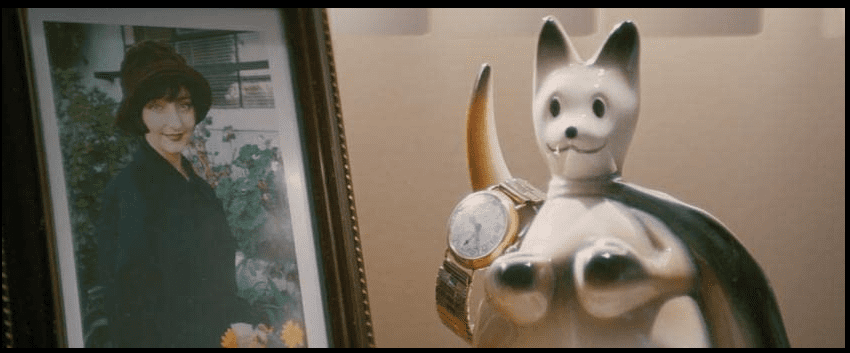Released on May 21, 1994, Quentin Tarantino’s crime thriller, Pulp Fiction, follows a bunch of character’s lives interconnect in a complex narrative filled with themes of petty revenge vs. divine retribution, fate vs. freak occurrence, and other ideas such as loyalty.
***Spoiler Alert!***
Vincent Vega (John Travolta) and Jules Winnfield (Samuel L. Jackson) are tasked to personally deliver a briefcase to their boss, Marsellus Wallace (Ving Rhames). After they murder Brett (Frank Whaley) to get that briefcase, we know the two mean serious business.
Later on in the story, Vincent is not exactly killed in a mad dash action sequence. He literally gets caught with his pants down and sitting on a toilet by a boxer named Butch Coolidge (Bruce Willis), and he gets shot before he even has a chance to wipe.
Why was Butch there? To get back a precious watch he had received from his father, something that has an established family tradition of being passed down from father to son. For that reason, Vincent had to die! To be fair, Vincent was there to shoot him first… but damn!

So, what does this have to do with father/son relationships?
There are some things implied in Pulp Fiction about Butch’s father, but the story is not told in its entirety, especially not in specific ways. We do know Butch feels an extra special need to carry on the watch tradition. It could very well be that he had a strained relationship with his father, and the watch represented one of the more positive aspects of his dad, a Vietnam War veteran.
It’s also plausible that Butch’s father was disappointed that his son decided not to follow in his footsteps by joining the military, becoming a boxer instead. Butch’s father is not portrayed as being abusive or controlling, but his need to preserve this one positive memory of his father suggests they probably had a difficult relationship (as does Butch’s chosen career, in which case he literally takes a beating to prove his worth).
Other Father-Son-Like Relationship Implications in Pulp Fiction
I could end this article right here. After all, Butch is the primary character with a father-related story arc. Still, just for fun, I want to draw some attention to other roles in Pulp Fiction that might seem comparable to father/son relationships.
One example of an almost father/son relationship in the film is between Vincent and his boss, Marsellus Wallace. While not explicitly stated, it’s implied that Marsellus plays almost a paternal role over Vincent, his loyal and trusted hitman. Vincent even defends his boss’s decision to throw Tony Rocky Horror over a balcony because he allegedly gave Marsellus’s wife, Mia (Uma Thurman), a foot massage.
Pulp Fiction and Loyalty to Father Figures
Basically, Vincent seems more fiercely loyal to Marsellus than to his partner, Jules. Their relationship could even be a source of tension between the two hitmen. In fact, toward the end of Pulp Fiction, Jules is pretty quick to walk away from his boss, a decision that Vincent seriously questions. Granted, these moments of dialogue aren’t entirely about Marsellus, and they give insight into how the two differ philosophically. Still, Vincent quickly assumes that Jules would have zero success in life outside of his current profession and under the guidance of Mr. Wallace. That’s loyalty, right?
Overall, Pulp Fiction doesn’t offer many clear conclusions about father/son relationships, but it does suggest that these relationships can be complex and fraught with tension and conflict. It also implies that the individualized dynamics of father/son relationships can have a significant (maybe even fatal) impact on people’s behavior and decisions.
What are your thoughts on Pulp Fiction and what it says about father/son relationships? Let us know in the comments… or we will strike down upon thee with great vengeance and furious anger!
 PopHorror Let's Get Scared
PopHorror Let's Get Scared



